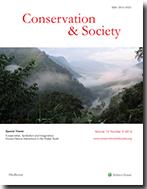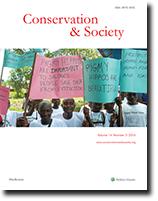"Scarcity, Alterity and Value: Decline of the Pangolin, the World’s Most Trafficked Mammal"
The paper analyzes pangolin trafficking among South and Southeast Asian countries, shedding light on the commodity chain linking the hunters and consumers of pangolin across South, Southeast and East Asia.





